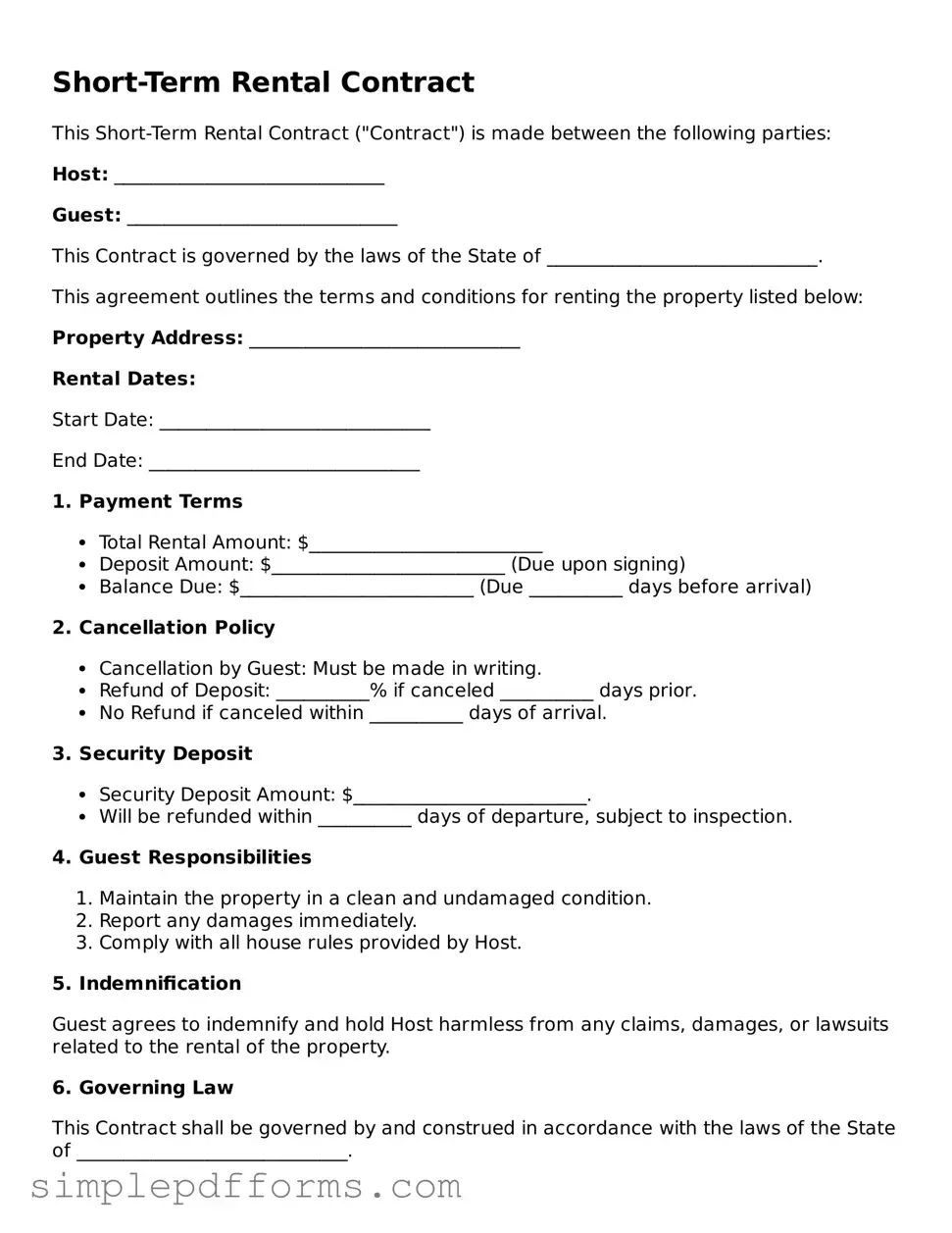Free Short-Term Rental Contract Form
The Short-Term Rental Contract is a crucial document that outlines the terms and conditions for renting a property for a limited duration. This contract serves to protect both the property owner and the renter, ensuring clarity and accountability during the rental period. Understanding its components can significantly enhance the rental experience and prevent potential disputes.
Open Short-Term Rental Contract Editor Now

Free Short-Term Rental Contract Form
Open Short-Term Rental Contract Editor Now

Open Short-Term Rental Contract Editor Now
or
Get Short-Term Rental Contract PDF Form
Your form is waiting for completion
Complete Short-Term Rental Contract online in minutes with ease.